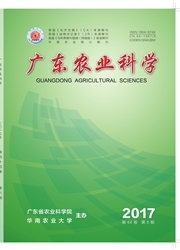

 中文摘要:
中文摘要:
以土地利用变更调查统计数据为依据,采用文献查询法、统计分析方法、GIS空间分析法以及土地利用动态度模型,从可持续利用的视角分析了1996-2012年广州市土地利用变化特征、土地利用数量和空间分布特征,进一步阐述土地利用变化的驱动力,得出广州市土地利用变化的基本规律.结果表明:广州市土地利用变化的主要特征是建设用地急剧扩张而导致耕地大量减少,耕地从1996年的129 286 hm2下降到2012年的84 567 hm2;建设用地中居民点及工矿用地和交通用地增加幅度较大,交通用地单一动态度接近7.1%.通过对广州与其他发达城市进行对比分析,发现经济因素和政策因素是导致广州市土地利用变化的重要因素,其中天河区和越秀区的土地经济密度增加率呈现较高水平.从可持续利用的角度来看,广州市未来土地利用需要更好地协调各业用地之间关系、社会经济发展与土地利用协调发展的关系、生态环境保护与土地开发利用的关系,通过一系列土地整治活动加强耕地保护,提高建设用地集约节约利用水平,改善生态环境,统筹城乡协调发展,最终实现广州市土地的可持续利用.
 英文摘要:
英文摘要:
This paper analyzed the change characteristics of the land use, quantity, spatial distribution and driving forces in Guangzhou city from 1996 to 2012 according to the land use change survey data, by literature inquiry, statistical analysis, GIS spatial analysis and land use dynamic model, from the perspective of sustainable development. The results showed that the main features were as follows: the city construction land expansion caused a substantial reduction of arable land, arable land area decreased from 129 286 hm2 to 84 567 hm2 from 1996 to 2012; the residential and industrial land increased, a single dynamic degree of it was close to 7.1%. We found thateconomic factors and policy factors played important roles in change of land use in Guangzhou, as well as the increase rate of land economic density in Tianhe District and Yuexin District showed a higher level, by comparing and analyzing the driving forces and many aspects between Guangzhou and other developed cities. In future, Guangzhou needs to better coordinate, coordinated development relations between social and economic development and land use, relationship between the ecological environment protection and exploitation and utilization of the land from the view of sustainable utilization. These measures will strengthen farmland protection, improve the land intensive utilization level of construction and the ecologicalenvironment, as well as make the coordinated development of urban and rural and finally realize the sustainable utilization of land in Guangzhou.
 同期刊论文项目
同期刊论文项目
 同项目期刊论文
同项目期刊论文
 期刊信息
期刊信息
